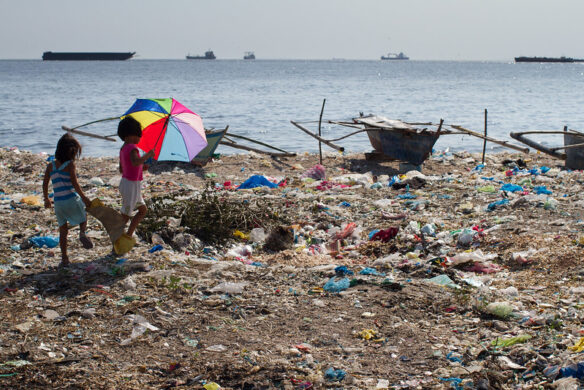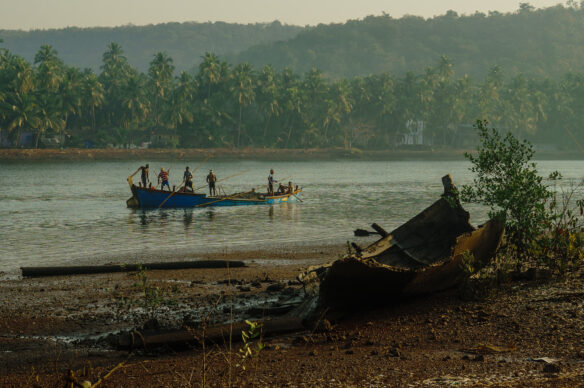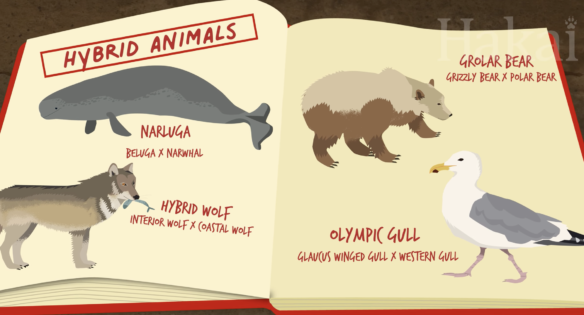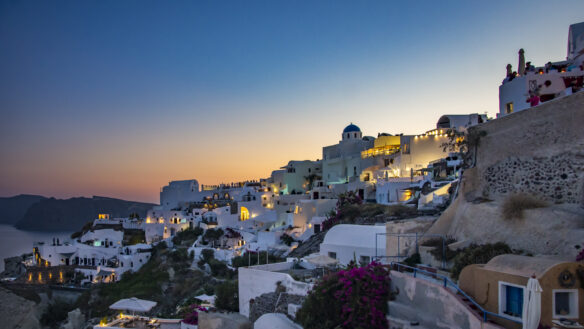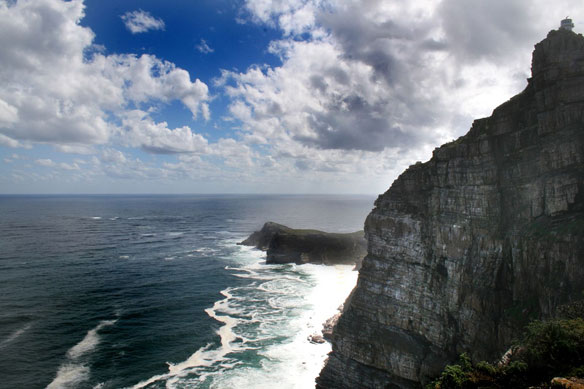
View of Cape of Good Hope, from Cape Point, South Africa. Photo source: ©© Erik Heidstra
Excerpts;
The plummeting price of oil on international markets has had many effects – one of which is that it may be cheaper for ships to travel right around Africa than go through the Suez Canal…
For one thing, at the moment traders are playing with what’s called a “contango” – more and more oil and refined oil products are being kept at sea or in storage as traders wait for prices to rise again. Currently there is an oversupply of crude oil around the world, and while we have more crude than we need, the demand for gasoline – a refined oil product – is quite high. This situation has led to volatility in the market and that’s where traders are making their money…
Worldwide Ship Traffic Up 300 Percent Since 1992, AGU (11-29-2014)
Maritime traffic on the world’s oceans has increased four-fold over the past 20 years, likely causing more water, air and noise pollution on the open seas, according to a new study quantifying global ship traffic…
Sea Traffic Pollutes Our Lungs More Than Previously Thought, Science Daily (11-20-2015)
New data show that the air along the coasts is full of hazardous nanoparticles from sea traffic. Almost half of the measured particles stem from sea traffic emissions, while the rest is deemed to be mainly from cars but also industries and natural particles from the sea…
Super-sized ships: How big can they get? Independent (10-21-2014)
The Largest Vessel the World Has Ever Seen, BBC News (12-16-2014)
Under construction for the energy giant Shell, the dimensions of the vessel are striking in their own right, but also as evidence of the sheer determination of the oil and gas industry to open up new sources of fuel…
A Satellite’s View of Ship Pollution, NASA / Earth Observatory (02-07-2013)
Despite the physical limits and risks, ships of more than 450m are anticipated within the next five years…
Breaking Bad on the Beach, NASA / Earth Observatory (09-28-2014)
Tens of thousands of ships ply the world’s oceans, bays, and rivers. But what happens when those ships have become too old or too expensive to operate? In most cases, they end up on the shores of Asia…literally.

